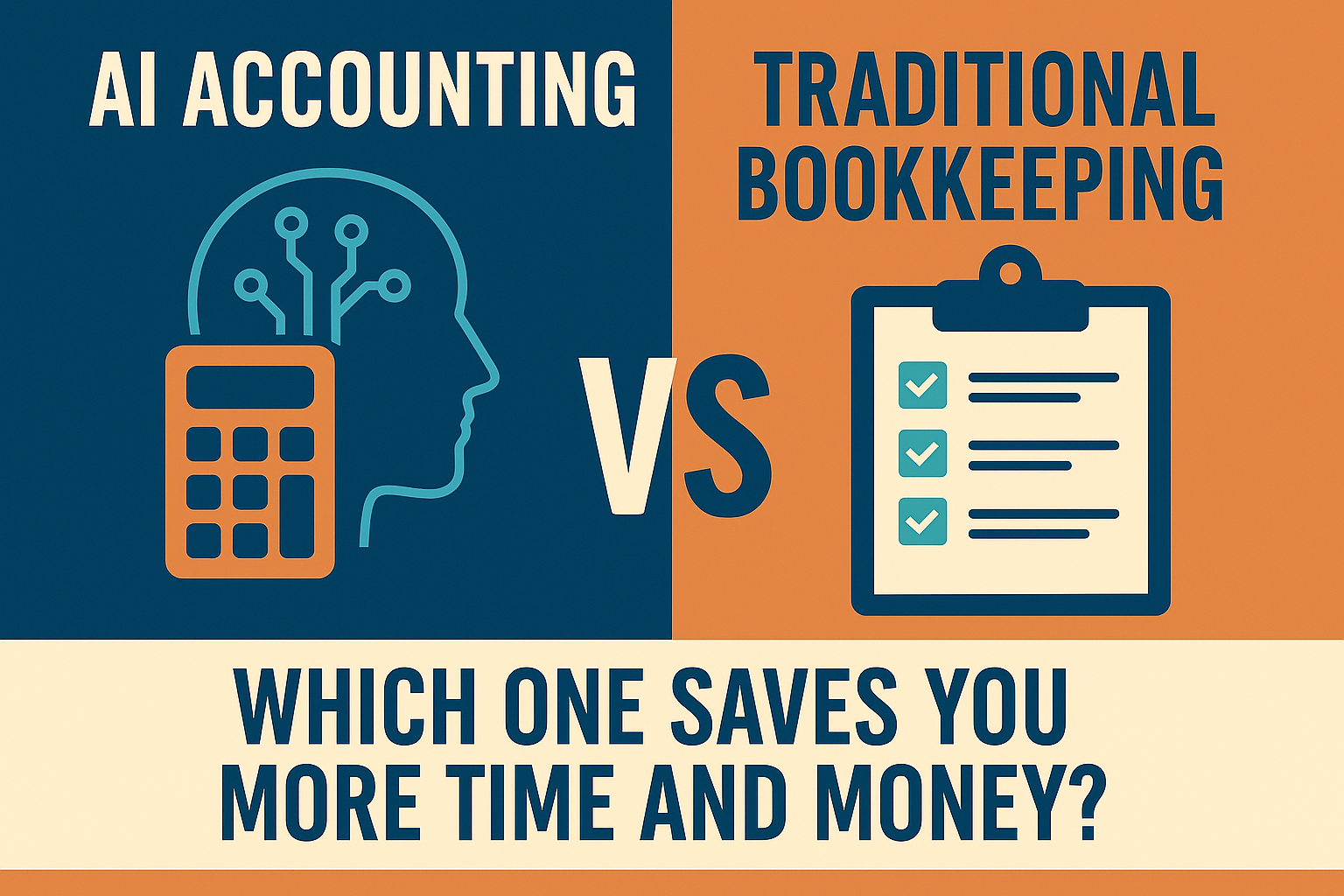
In today’s fast-moving business environment, time and accuracy are everything — especially for small and medium enterprises (SMEs). Traditional bookkeeping has long been the backbone of financial management, but it comes with limits: manual work, delayed insights, and higher costs.
AI accounting, on the other hand, is changing the game by combining automation and intelligence to streamline every step of the process. Here’s how the two compare — and why one clearly saves you more time and money.
Traditional bookkeeping depends heavily on human effort. Accountants manually input transactions, categorize expenses, reconcile bank statements, and prepare reports at the end of each period.
While this process ensures control and familiarity, it’s also:
In short, traditional bookkeeping keeps you compliant — but not always competitive.
AI accounting transforms the same process into a smart, automated workflow.
Instead of typing numbers into spreadsheets, intelligent software reads invoices, matches payments, reconciles accounts, and generates instant reports — all without manual input.
Platforms like ccMonet go further by combining AI automation with human expertise. Transactions are automatically categorized and verified by professionals, ensuring both speed and accuracy.
The result: real-time visibility, fewer errors, and smoother collaboration between business owners and accountants.
With traditional bookkeeping, financial reports are often delayed until month-end or quarter-end.
AI accounting eliminates the wait. Data updates continuously, giving you live insight into your business performance.
That difference translates into faster decision-making — and more time for strategy, not spreadsheets.
Manual bookkeeping requires ongoing labor costs and often extra time for corrections.
AI systems handle the workload of several accountants at a fraction of the cost, and without fatigue or inconsistency.
For SMEs, this efficiency directly improves cash flow and profitability.
Traditional bookkeeping accuracy depends on human diligence. Even skilled professionals make occasional errors — especially under tight deadlines.
AI minimizes that risk by following consistent logic and checking every data point.
In ccMonet, AI automatically flags anomalies and ensures audit-ready documentation, while human reviewers validate context and compliance.
It’s not just automation — it’s accountability.
AI accounting isn’t limited to recordkeeping. It provides insights that help you plan ahead — identifying spending trends, forecasting cash flow, and suggesting actions to improve performance.
Traditional bookkeeping tells you where your money went; AI accounting shows you where it’s going next.
Traditional bookkeeping is reliable but rigid — it records the past.
AI accounting is agile and forward-looking — it helps you shape the future.
By automating repetitive work, reducing costs, and delivering real-time insight, AI accounting doesn’t just save time and money — it creates lasting value.
With ccMonet, SMEs can make the switch seamlessly — combining intelligent automation with expert human review for financial management that’s faster, smarter, and built for growth.